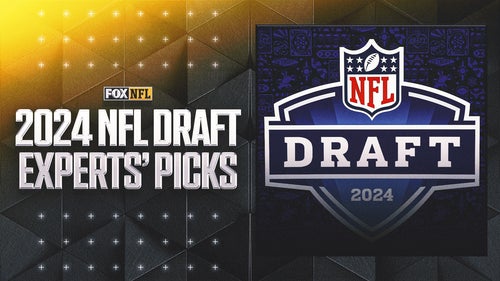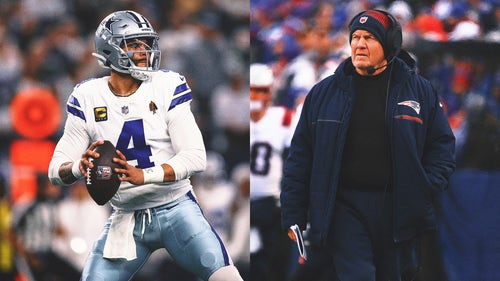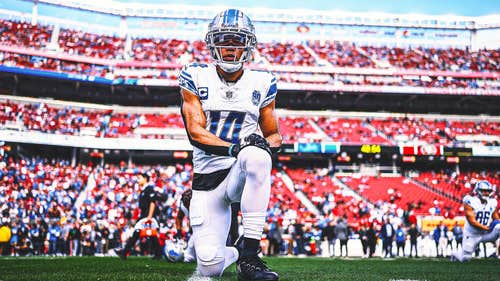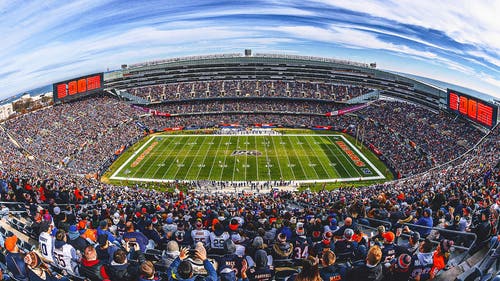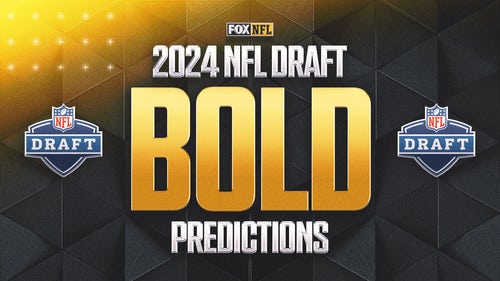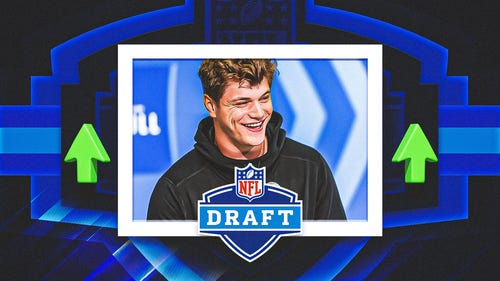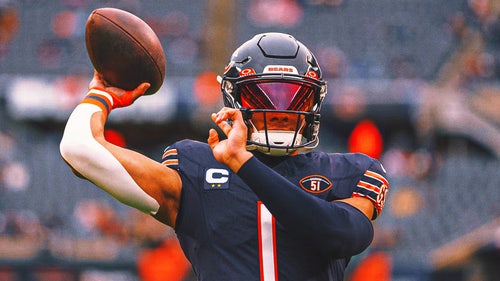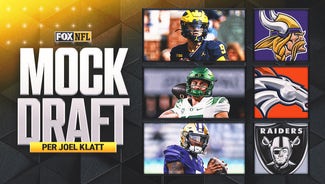
Veteran QBs learn the backup role
In the first weekend of the 2011 NFL season, Jason Campbell, Rex Grossman, Chad Henne, Colt McCoy and Kyle Orton were starting quarterbacks for their respective teams.
Nine months later, all five veteran quarterbacks — with an average of 47.6 regular-season starts among them — project as backups for their current franchises.
"You do what you have to do ... but it does take a certain getting used to," conceded Campbell, the onetime Washington and Oakland starter signed to a one-year deal by Chicago during the offseason as the backup to Jay Cutler, to The Sports Xchange.
It takes a certain mindset to be a productive backup quarterback in the NFL, a mentality with which many onetime starters struggle, but one with which several players will have to become comfortable this season. It will be a transition that could be very intriguing in 2012, certainly an interesting element to the year.
Rarely, if ever, have so many veteran quarterbacks who arguably retain starting potential been relegated to No. 2 spots on depth charts around the league. Depending upon one's perspective, that could be either bad or good. From one standpoint, the primary backup position is arguably as strong as it's been in years given the widespread perception that the depth at the game's most critical position had been disastrously shallow. But for veterans such as Campbell (70 career starts), Orton (69) or Grossman (49, and a Super Bowl XLI appearance), the comedown figures to indeed be a fairly difficult one.
"You never really lose the competitiveness, the will to start, the knowledge that you still have to prepare (diligently)," said Mark Brunell, who averaged more than 14 starts per year in Jacksonville during the eight-season stretch 1995-2002, but who has logged only one start over the past five seasons. "But at the same time, you know you're not 'the man' anymore. So you have to come to grips with that. While you get yourself ready to play, you have to help (the starter) get ready, too. And you put the team goals way ahead of any kinds of things for yourself."
Of course, with numerous injuries to high profile starters the last several years, the backup spot has taken on more importance. In 2011, for instance, only 15 players started all 16 games at quarterback. But most of the replacements weren't regarded as quarterbacks with viable starter potential.
That may not be the case this year.
It seems clubs have exerted more effort in securing solid backups for the 2012 campaign. And the emphasis on drafting and playing guys quicker — the likelihood is that at least three first-round rookies will open the season as starters for their teams — has relegated some pretty good quarterbacks to second-banana status for the coming year. For all the hand wringing over the lack of quality in the league, there simply weren't many starter openings for veterans.
The only veteran really a lock for a starting job with a new team in 2012 is Peyton Manning in Denver.
A onetime starter, first in Chicago and then in Denver and Kansas City, Orton noted this week to the Cowboys' website that his signing with the team didn't necessarily mean that he had "committed (himself) to being the backup." But the reality of the situation is that Tony Romo has started 13 or more games in five of the past six seasons, and all 16 in two of the last three, and that Orton might not play much.
At just 29 years old, and having been a team's opening day starter in each of the last four seasons, Orton is certainly young enough and good enough to be considered for starting jobs, although not this year. Ditto Campbell, 30, whose broken collarbone last season prompted the Raiders' trade for Carson Palmer, and temporarily at least, derailed the seven-year veteran's starting tenure.
No team, however, dangled a starting possibility at either player in free agency, and, thus, they opted for No. 2 slots.
Dallas quarterbacks coach Wade Wilson, who himself experienced the transition to backup after starting most of his career, lauded Orton and his demeanor in an interview with DallasCowboys.com. But Wilson and other coaches also have allowed that Orton's ultimate goal is to be an NFL starter again. The man Orton replaced, the retired Jon Kitna, who started nine games in three seasons with the team (all in 2010, when Romo was sidelined with a fractured clavicle), seemed to understand that the term "backup" had nothing to do with any notions of moving back up into a full-time starter's role.
Orton and Campbell can only hope their situations get better. Orton, though, signed a three-year contract with the Cowboys. Campbell's deal in Chicago is for 2012 only, and he can become a free agent again next spring. There are no guarantees, though, the scenario will improve for him in 2013. For now, Campbell will make the best of things, be a good soldier, and react accordingly to his next shot.
"You don't just get rid of the (starter's) itch overnight," Campbell said. "You take it one year at a time and respond as best you can to the situation that presents itself."
And sometimes, unfortunately, the situation dictates that a guy who was on the top perch of the depth chart gets knocked down a rung.
"It's what you make of it," Charlie Batch of the Pittsburgh Steelers, who hasn't been a full-time starter since 2000 after posting 46 starts in his first four seasons, with the Detroit Lions, told The Sports Xchange.
McCoy, only 25, seems destined to lose the No. 1 job in Cleveland to first-round draft pick Brandon Weeden. After starting 27 games during 2009-2010 in Miami, and demonstrating promise Henne, 26, was injured last season, became an unrestricted free agent, and at age 26, is now the backup to Jacksonville second-year QB Blaine Gabbert, the NFL's lowest-rated starter a year ago. The graybeard of the lot at 31, Grossman will make way for first-rounder Robert Griffin III.
But those aren't the only former starters likely to be No. 2 quarterbacks in 2012.
There are 13 teams with probable backups who have registered at least 20 starts each for their careers. The number could rise by one or two, given the looming camp competitions in various other league precincts. And the list varies, from a player who was once the draft's top overall selection (David Carr); to a third overall choice in a draft (Vince Young); to a player who started 10 games every season 2006-2010 but sat out all of 2011 because of back surgery (David Garrard); to a veteran who hasn't started more than four games in any of the last four years (Bruce Gradkowski); to a one-time Pro Bowl performer (Derek Anderson) who is now with his third club in four seasons. Pittsburgh actually has two backups, Byron Leftwich and Batch, who have each started more than 45 games, and own 102 starts between them.
There are probably three other franchises that likely will have backups with 15 or more career starts. Notable is that at least nine teams figure to have backup quarterbacks whose NFL resumes include more starts than the No. 1 guy.
The job description — be ready to play but also be prepared to subjugate your ego in exchange for a paycheck — is a fairly common denominator. But that doesn't mean it is an easy acclimation.
Some of the best No. 2 quarterbacks in recent history were signal-callers who essentially were career backups and developed early on a "backup mentality." One of the better players in that regard, although he wouldn't admit it, is Shaun Hill of Detroit. Despite 26 career starts, Hill has never started more than 10 games in any season. He is a solid player, one who understands his role behind emerging star Matthew Stafford, and isn't about to rock the boat. Lions officials made re-signing Hill as a free agent in the spring a priority, because, as one club executive noted, the 10-year veteran "has the perfect approach" for a backup quarterback.
For a lot of others, however, that niche takes a while into which the player can grow.
"You never just 'settle' for not being the starter," Leftwich said. "But you have to be realistic about things, too, and so what's best for you and the team."
There are quarterbacks in the league who once started but are fortunate now to get a handful of 'reps' in daily practices, or who will operate the scout team. Sure, some quarterbacks enter the league knowing they may be just career No. 2 guys, but many slip back into the spot. "And," one former starter agreed this week, "the slide is like a jolt of reality. But it is the reality of the situation."
Perhaps a guy like Young, the third overall pick in 2006, a guy who started 28 games his first two seasons but just 22 in the ensuing four years, will again be elevated to No. 1 status somewhere. Perhaps Campbell or Orton will get into a situation where they are the top dogs again. There are examples of quarterbacks who took two steps back in their careers in order to make a giant leap again into a starter's role. But those cases are few, and the likelihood that some very experienced quarterbacks may never again be full-time starters is very real.
"If you've been a starter for a good while," Brunell said, "it can be a tough switch."
But one to which a lot of quarterbacks may have to be resigned in 2012.






































































































































